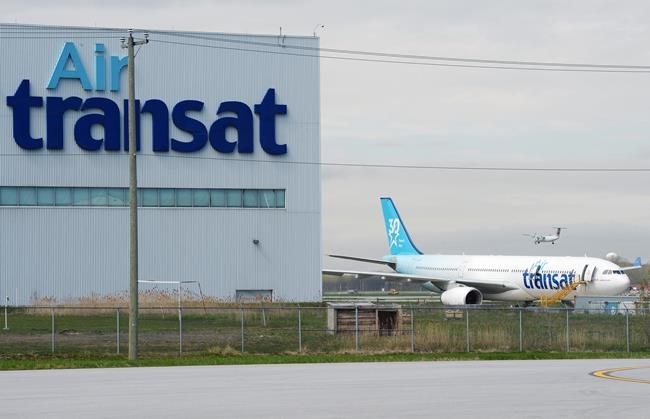MONTREAL ÔÇö Baby boomers have shed their pandemic reticence around travel as they increasingly fly abroad again ÔÇö a boon for Transat AT Inc., its CEO says.
"People from 55-plus ÔÇö the baby boomers ÔÇö have resumed their pre-COVID travel pattern, which was not the case in 2022," Annick Gu├®rard said Thursday.
"It represents a good proportion of our clientele. And they have significant disposable wealth and the time to travel and spend," she told analysts on a conference call, noting older Canadians spend 15 to 20 per cent more than the average Transat customer.
"This is really important for us. And they are expected to be much more resilient than younger consumers in the face of higher prices and high inflation, which we know will continue in the upcoming year."
Despite those economic clouds, Gu├®rard said that "we don't see signs of a slowdown" in bookings on the horizon ÔÇö for summer or winter. "Demand is holding despite higher fares and higher inflation."
The clearer skies mark a welcome forecast for the travel company, which on Thursday reported its 14th straight quarter of losses. Nonetheless, it shrank them by more than two-thirds year over year, trouncing analysts' expectations amid a major sales boost propelled by lofty leisure travel demand on top of pricier tickets.
Transat revenues more than doubled year over year, while it reported a second-quarter loss of $29.2 million versus $98.3 million a year ago.
The red ink stems partly from the interest on Transat's $1.92 billion in total debt ÔÇö including $1.05 billion in aircraft lease liabilities at a company that owns none of its fleet ÔÇö following the financial devastation of the pandemic.
"Net debt remains too high in our view, sitting at $1.3 billion versus a market cap of about $170 million," National Bank analyst Cameron Doerksen said in a note to investors. However, the company has extended the maturity on its secured loans by a year to April 2025, providing more financial flexibility, he added.
The urge to fly drove up prices by 15 per cent at the outset of the quarter and nearly 24 per cent by the end ÔÇö April 30 ÔÇö compared with 2019, Gu├®rard said, yielding much more cash per customer.
She also cited more efficient use of planes, with the company deploying 20 fewer aircraft over the winter compared to 2019 while keeping seat capacity roughly on par.
Transat plans to furnish 89 per cent of its seat capacity this summer relative to 2019 levels, with the vast majority bound for Europe ÔÇö destinations range from Athens to Zagreb. More than 60 per cent of those tickets are already sold, Gu├®rard said.
Nonetheless, the company is exercising ÔÇ£disciplineÔÇØ on growth, she added, ÔÇ£in case the economic slowdown will affect overall demand ÔÇö but so far we donÔÇÖt see that in our indicators.ÔÇØ
Passengers across the continent have continued to scratch the travel itch that built up over two years under COVID-19 restrictions. 
Air sa╣·╝╩┤½├¢ eked out a quarterly profit of $4 million in the first three months of the year and for only the second time since 2019. However, Transat has yet to push its bottom line into the black since that year.
A dearth of workers and engine parts mark two challenges for airlines, including Air Transat.
ÔÇ£The labour market is tight, of course, but we have been able to attract and retain all the people we need," Gu├®rard said. The Montreal-based company is also leasing additional engines, some as backups, to meet supply chain challenges.
On Thursday, Transat reported its loss amounted to 76 cents per diluted share for the quarter ended April 30 compared with a loss of $2.60 per diluted share the year before.
Revenue totalled $870.1 million, up from $358.2 million in the same quarter last year.
On an adjusted basis, Transat said it lost 21 cents per share compared with an adjusted loss of $2.95 per share a year earlier. The figure exceeded by 68 per cent analyst predictions of a loss of 66 cents per share, according to financial markets data firm Refinitiv.
The company also raised its target for adjusted operating income margin to 5.5 to seven per cent for its 2023 financial year, up from its initial target range of four to six per cent.
This report by The Canadian Press was first published June 8, 2023.
Companies in this story: (TSX:TRZ)
Christopher Reynolds, The Canadian Press



